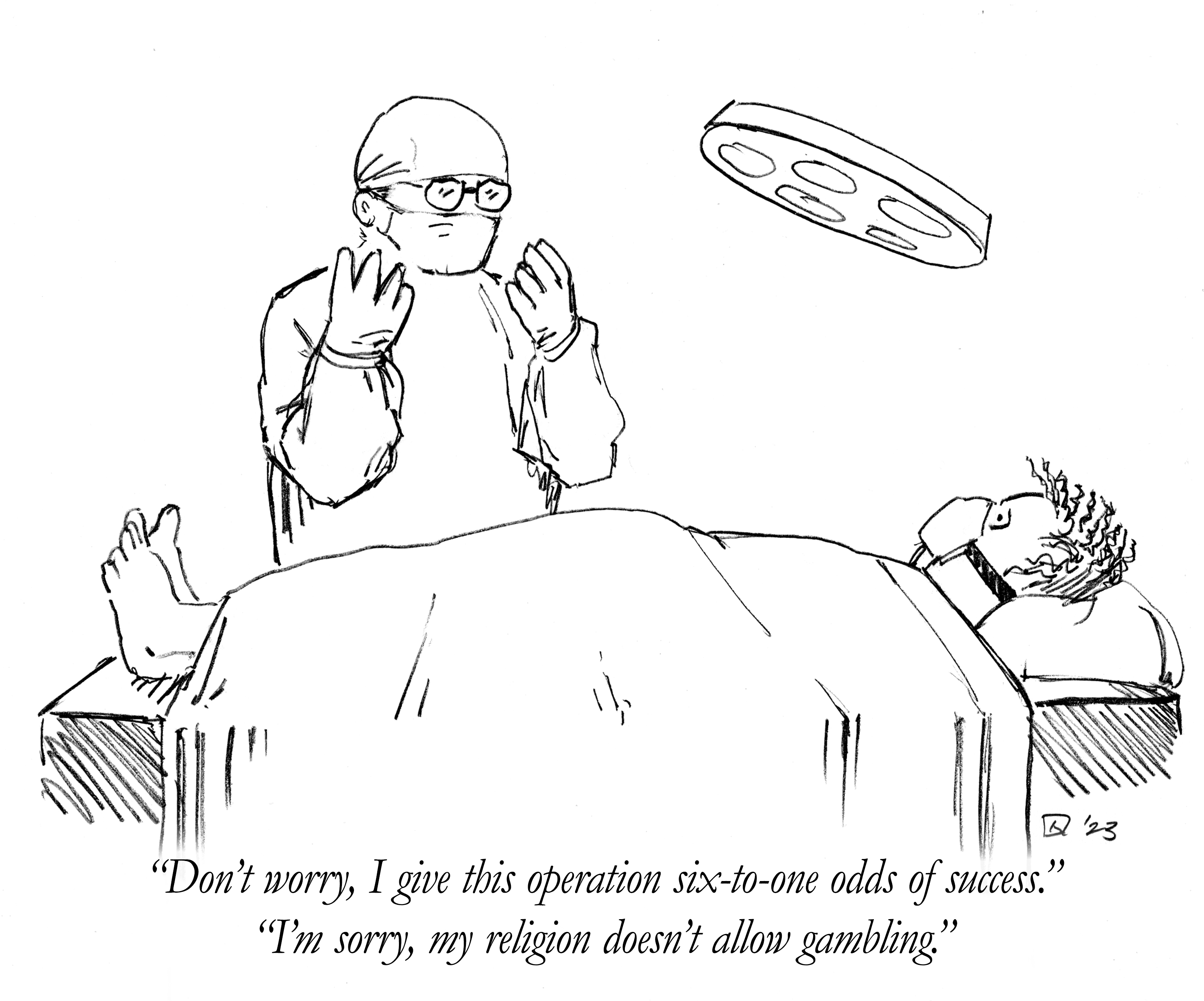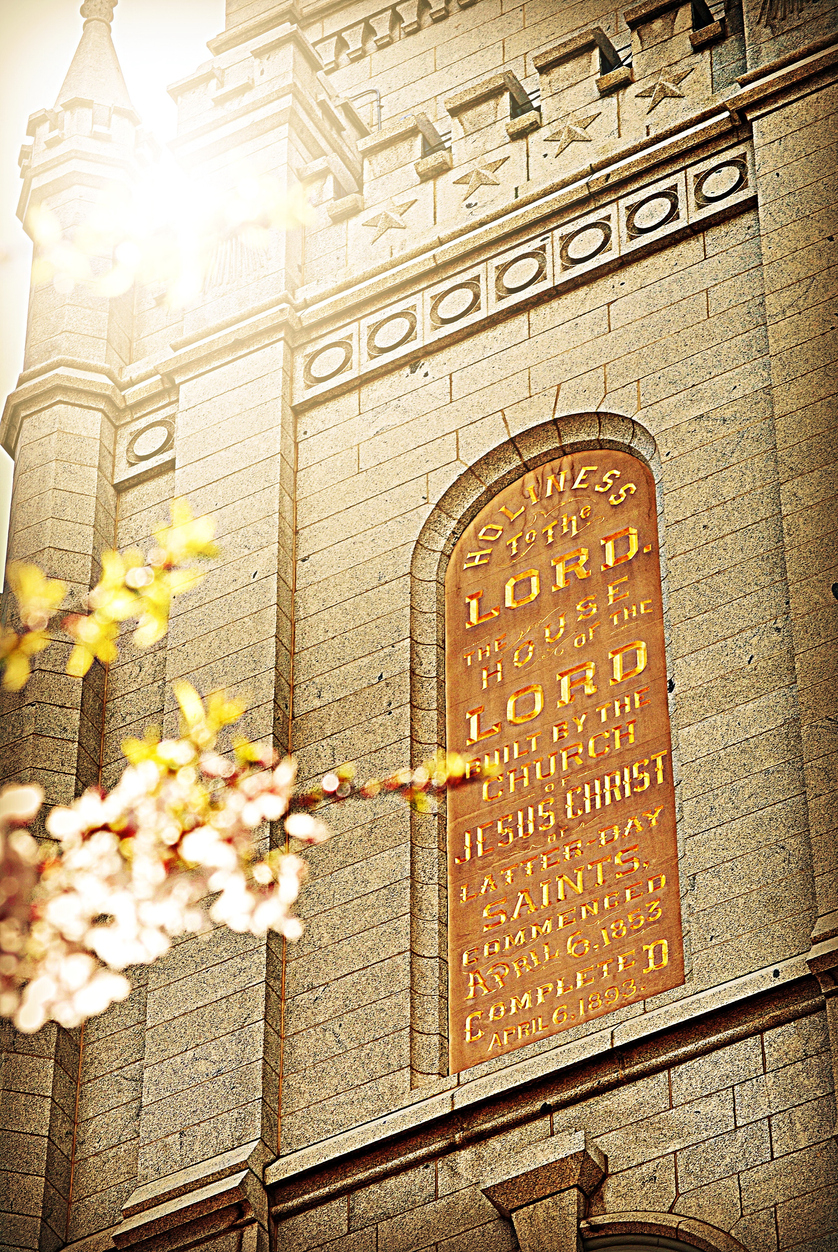Tom Christofferson recounts sitting in a local Latter-day Saint conference and watching a woman on the stand—unmasked—rise to share remarks. “All I could focus on is how bugged I was that she had defied the simple request to wear a mask. During the first part of her talk, I don’t think I heard anything she said.”
That’s when, Tom recounts, a still, small idea came into his mind: “When you speak, there are some who wonder why they should listen to you too, since you haven’t always been faithful and they hear the word ‘gay’ as a synonym for ‘sin.’”
Immediately, Tom says he felt contrite—and “prayed to be forgiven for my pride.” His heart opened enough to be able to listen to this sister Saint, despite real disagreements continuing between them.
In his letter to the Ephesians, the apostle Paul enjoins the Saints of an earlier day to “forbear one another in love … with all lowliness and meekness, with longsuffering … endeavoring to keep the unity of the Spirit in the bond of peace.” That’s when he teaches: “There is one body, and one Spirit, one Lord, one faith, one baptism, one God and Father of all, who is above all, and through all, and in you all.”
The value of this kind of unity transcending other differences was preached by prophets anciently. And it is preached by prophets today. Yet many still understandably wonder … especially with our many serious disagreements today, is it possible for liberal and conservative-leaning believers to reach towards a deeper unity in one body of Christ? Could people with sincere questions about government overreach have their hearts woven together with those with sincere questions about sexuality and family? Is it possible for liberal and conservative-leaning believers to reach towards a deeper unity in one body of Christ?
After all, Latter-day Saints heard a lot at this most recent conference about Christ as an anchor for deeper unification. For instance, Elder Dale G. Renlund described a time in ancient America when total peace was achieved in all the land. After asking, “Do you think that the people were unified because they were all the same, or because they had no differences of opinion?” he said, “I doubt it. Instead, contention and enmity disappeared because [the people] placed their discipleship of the Savior above all else. … Their differences paled in comparison to their shared love of the Savior, and they were united as ‘heirs to the kingdom of God.’”
Elder Renlund went on to propose that we too could be “united by our common, primary identity as children of God and our commitment to the truths of the restored gospel”—in a way that generates love and respect, even as we “value the kaleidoscope of others’ characteristics, perspectives, and talents.” He concluded with a gentle nudge: “If we are unable to place our discipleship to Jesus Christ above personal interests and viewpoints, we should reexamine our priorities and change.”
That’s quite the charge. Imagine what it would mean if we could actually do that as a people?
President Russell M. Nelson raised a similar aspiration: “Imagine how quickly the devastating conflicts throughout the world—and those in our individual lives—would be resolved if we all chose to follow Jesus Christ and heed His teachings.”
Yes, imagine that, John Lennon! If we take these prophetic appeals seriously, perhaps it means we need to do more than asserting tribal convictions again and again (as we and other magazines often do)—and explore ways to go deeper in figuring out how to come together in our hearts despite lingering, sincere differences in perspective about a variety of important matters (marriage, guns, immigration, pandemic, etc.)…yes, including among committed, believing, sincere followers of Jesus. Have we sometimes been too hard on our left-leaning brothers and sisters with honest questions about family, sexuality, and identity?
After all, that space in which we grapple with competing views and put forth our best arguments is precious and increasingly under attack. And voices of faith, in particular, are the ones currently being told to ‘get off the field’—‘it’s okay to believe these things in the privacy of your homes, but don’t bring them into the public square, please.’
Some have expressed concern that choosing to feature strong critiques of popular narratives in society today (by Ralph Hancock, Jacob Hess, Meagan Koehler, Jeff Bennion and many others) creates division by making people who hold these dominant views uncomfortable. While maintaining an equally strong commitment to civility and respect in these sensitive conversations (so as to minimize discomfort and maximize connection), we maintain that a greater threat resides in the continuing push to silence voices of dissent—leaving a public discourse that is increasingly deformed, imbalanced, and confusing to those who are seeking more truth.
That’s why we remain committed to featuring healthy viewpoint diversity, including among believers. Even so, we can all still anticipate and appreciate a growing unity of mind that happens as we seek to unite around a common discipleship of Christ. As Paul proposed to the ancient Saints, “we have the mind of Christ,” adding, “be not conformed to this world: but be ye transformed by the renewing of your mind … let this mind be in you, which was also in Christ Jesus.”
Making some space for meaningful differences in perspective on important matters in the body of Christ also doesn’t require us to pretend that God somehow embodies or celebrates ideas that are fundamentally at odds. Doctrinal, theological, and philosophical differences will continue to matter a lot—on so many practical levels.
But in a place where our hearts are at war with each other, we can hardly talk about these differences anymore—let alone seek a greater appreciation of the full truth together. As our hearts come together more, surely our minds can too. And that’s where these prophetic invitations are so encouraging.
It’s not uncommon to hear stories of couples grappling in their marriage who can’t find a way to embrace a common vision for their future … until they decide to center their hearts together on God. Doing so almost inevitably brings their minds together since their hearts are now (more) at one (at-one with Him). In a similar way, perhaps we Saints in a divided America can find refreshing new reconciliation of spirit as we do as the prophets have challenged—seeking a new unity arising not from cognitive alignment alone, but also from centering our hearts on God.
Rather than focusing on that deeper unity of heart, however, it’s understandable that we still long for (and should work towards) a growing and future unity of minds too. Yet Elder Renlund went on to caution “We might be inclined to say, ‘Of course we can have unity—if only you would agree with me!’” He then added, “A better approach is to ask, ‘What can I do to foster unity? How can I respond to help this person draw closer to Christ? What can I do to lessen contention and to build a compassionate and caring Church community?’”
The apostle went on to encourage disciples of Christ to practice precisely the opposite of what we see on cable news programs: “Assume that those with whom we disagree are doing the best they can with the life experiences they have.”
Asian American Pastor Francis Chan often shares his conviction at what would happen if Christian believers could arise to the high standard of God’s call to His people in scripture. “I believe people would walk into our Church houses and be shocked, going, ‘who are these people? I’ve never seen anything like this … I have to be a part of this!”
Pastor Chan shares that as dream-like anticipation. But again, what if that could really happen?
The barriers to getting there are real. Within the partisan atmosphere around us, what increasingly matters the most—above all else—is pure fidelity to the Right Way of Thinking about virtually every important question. Consistently, significant numbers on the left and right will be quick to see such appeals to deeper unity as yet-another-dangerous-lapse from orthodoxy, given how such invitations defy conventional tribal boundaries.
It’s true the prophetic call highlighted above challenges those presumptions in meaningful ways—inviting people to open their hearts to those who may not be “thinking the right way” (not yet).
Like many, we have felt called to repentance by all this recent teaching, and found ourselves wondering: Have we sometimes been too hard on our left-leaning brothers and sisters with honest questions about family, sexuality, and identity?
It’s also the case that for many of us, it’s been far too easy in the past to emphasize and showcase the elements of prophetic teaching that align with our own preferred socio-political philosophies. Conservative members may highlight entreaties for fidelity and obedience (saying far less about the rigors of charity), while progressive-leaning members may focus on expressions of compassion and attention to God’s love (saying far less about the demands of certain truths).
But, of course, neither of these in isolation is the complete picture, as the whole of prophetic counsel makes clear. And this whole picture of collective teaching does seem to leave no group or individual without profound challenges to improve and change. As Racical Civility host Ben Pacini put it, “Without changing even one iota of our intellectual beliefs and convictions, there are things we can do to be more unified, including at the very least simply not letting anger into our hearts before our brothers and sisters.”
In the days ahead—like the days behind—we will be featuring more explorations of tough questions in our society today, virtually all of which committed believers grapple over—pornography addiction, plastic surgery, wage gaps, race, identity, pandemic response, etc.
In each case, while grappling over competing ideas, we will continue to encourage our writers to preserve space for hearts to be united by avoiding character attacks or insinuations of ill intent. These are ideals we’ve been committed to since the founding launch of Public Square Magazine.
But we know we can do better. And we are committed to that. There is an important place for affirmations of truth, and defenses against the attacks on truth that will no doubt continue. But we’ve also asked ourselves in recent days: In what ways can we do more than amplify and defend truth—considering other ways to draw hearts together across these many divides? “We’re in this big mess, and the prophets have told us the way we could get out of this.”
We believe these prophetic teachings are more radical than people realize. As one sister told us after the conference, “This is our only way out as a country. We’re in this big mess, and the prophets have told us the way we could get out of this.”
We believe that. And we’re excited to see what God could do among us as a people in the days ahead.
















